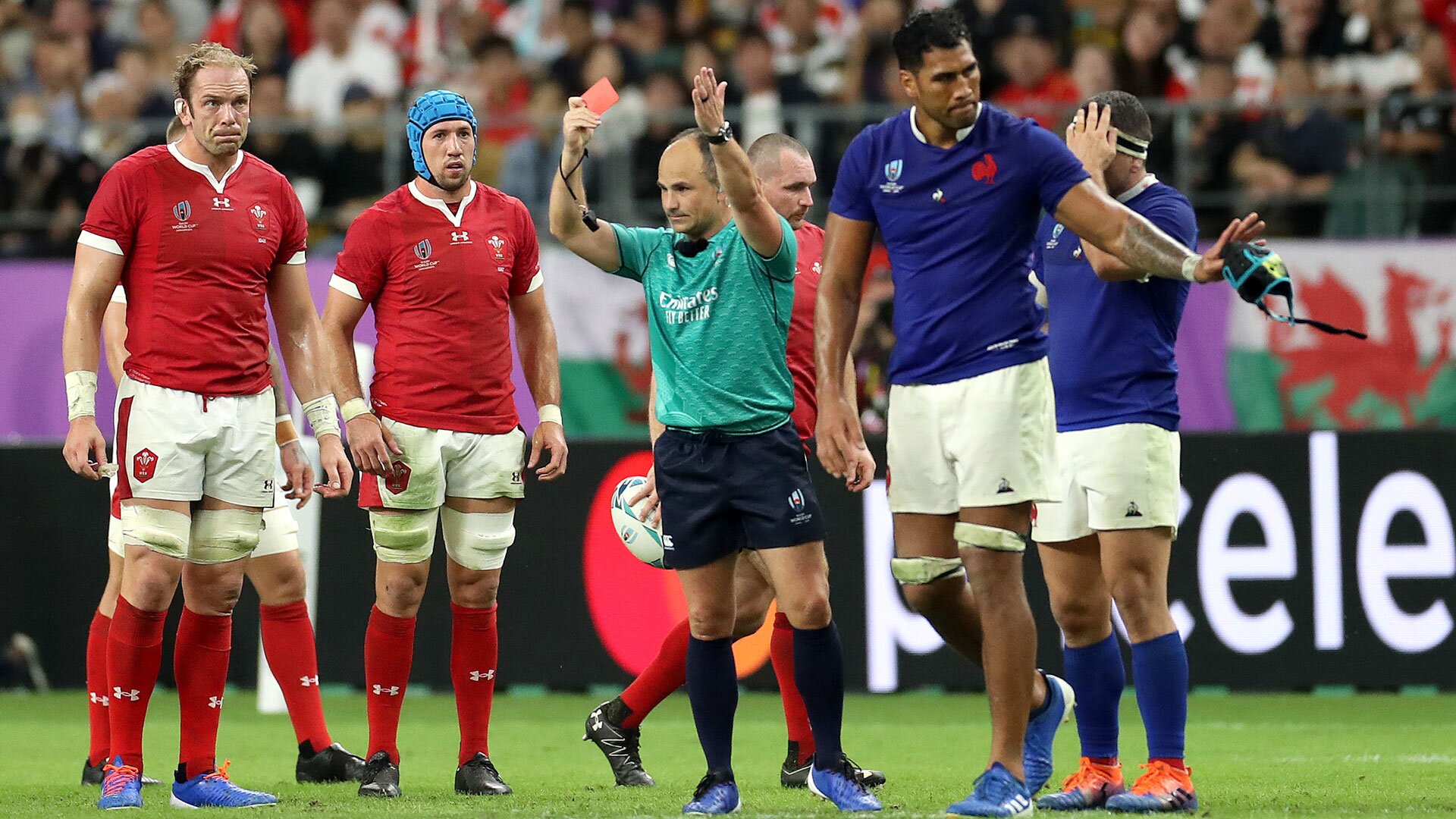Second half all red as Wales reverse 2011 World Cup semifinal result to conquer erratic French

You never know which French team is going to turn up – or so the old saying goes.
We got a little taste of everything in Oita for their Rugby World Cup quarterfinal with Wales: the sublime, the mesmerising, the frustrating, and the downright absurd.
Their first half was incredible – but it was all undone by a stupid decision made by Sebastien Vahaamahina, who was sent from the field for dangerous play.
France, coming off a two-week rest since their last match against Tonga, raced out of the blocks early, scoring two tries in the first 10 minutes of the match.
Lock Vahaamahina dived over from a 5-metre lineout – his first try in over 40 matches for Les Blues – then flanker Charles Ollivon dotted down after flyhalf Romain Ntamack broke through Wales’ defence on halfway.
(Continue reading below…)
It was the French at their best; showing grunt up front, skipping through tackles, and offloading superbly.
Moments later, however, Wales’ Aaron Wainwright gobbled up a loose ball and raced away for a 40-metre solo effort.
France ultimately took a 19-10 lead into the break after a half of seriously entertaining rugby.
Things then took an even spicier turn in the second stanza.
Jaco Peyper’s 49th minute decision to send Vahaamahina from the field could have proved costly for Les Bleus and will be one of the match’s huge talking points.
https://www.instagram.com/p/B3zYcEsgSWv/
There’s been a strange discourse recently that refereeing decisions have been ruining matches, but even the most sympathetic fans would have no issues with Peyper’s decision. Vahaamahina, bound in a maul just five metres out from Wales’ tryline, intentionally threw an elbow into the cheek of Wales flanker Aaron Wainwright.
Peyper initially awarded just a penalty to Wales but closer inspection made it an easy red card decision.
You would have been forgiven for thinking that Wales were about to take control of the match at that point, but evidently a one-man advantage only really brought them parity with the well-rested French.
“In a way it puts that result in context now, and I’m not alone anymore."#RugbyWorldCup #JPNvRSA #JAPvRSA https://t.co/tFO48zq89l
— RugbyPass (@RugbyPass) October 19, 2019
A Dan Biggar penalty in the 54th minute brought the Red Dragons within one score of a victory, then Wales took advantage of their extra man in the forward pack in the 74th minute to score the most important try of their tournament, off the back of a 5-metre scrum turnover.
That pushed Warren Gatland’s side ahead by a mere point after Biggar added the gimmie extras – and that was where the scoreline stayed for the final five minutes of the match.
The 20-19 victory reverses the result from the last time these two sides squared off at a World Cup. In 2011, France won their semifinal clash, 8-9, in eerily similar circumstances after Wales captain Sam Warburton was red-carded for a tip tackle.
Whilst Warburton may have been slightly unlucky in that game, Vahaamahina has no one to blame but himself for this year’s result.
Wales will now meet the winner of the final 2019 World Cup quarterfinal which sees hosts Japan pitted against the Springboks.
Big Jim gives his take on the final quarterfinal:

































